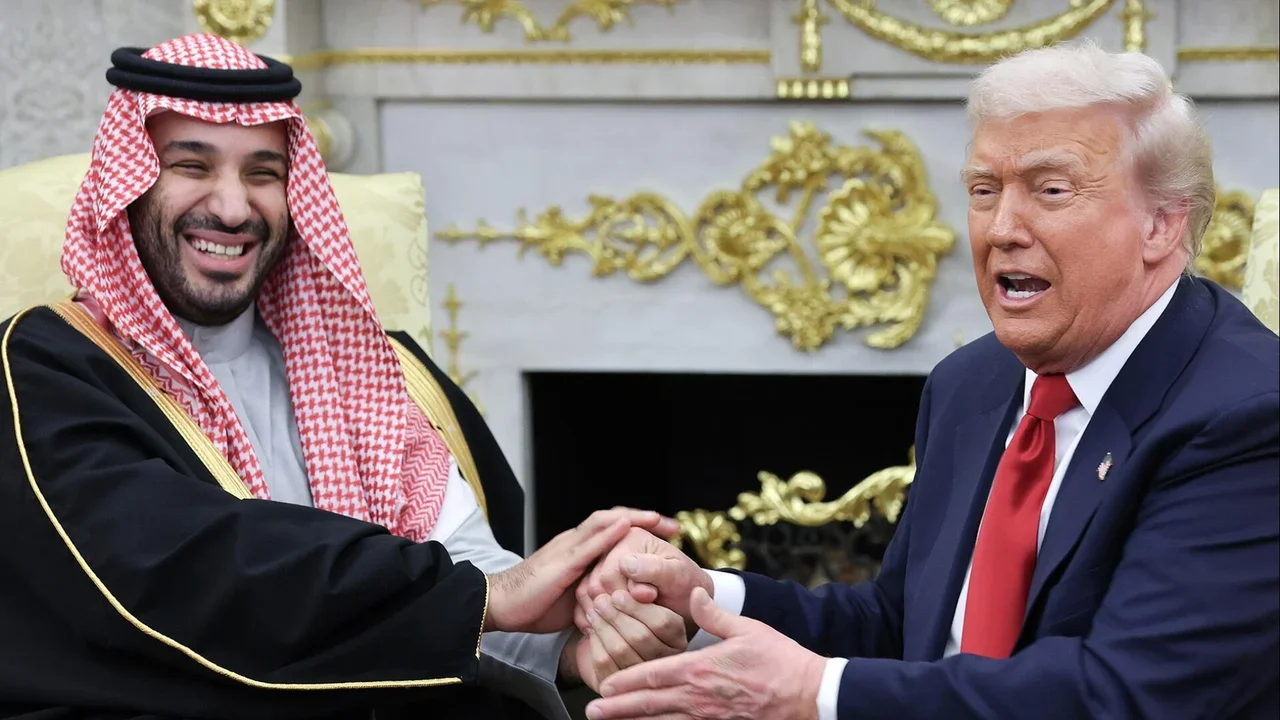How Saudi Arabia Is Quietly Rewriting U.S. Power — And Why It Matters Now
In a world where geopolitics and human rights often clash, the recent visit of Saudi Crown Prince Mohammed bin Salman (MBS) to the White House raises significant questions. How can a leader linked to the brutal murder of journalist Jamal Khashoggi be welcomed back into the fold of international diplomacy? This blog post delves into the intricacies of U.S.-Saudi relations, exploring the motivations behind such encounters and their broader implications.
The Return of Mohammed bin Salman to Washington
Recently, MBS stepped back into the White House, a move that has sparked outrage and disbelief across the globe. This meeting comes after years of condemnation following Khashoggi's assassination, in which the CIA concluded that MBS was involved. Kim Obour highlights how this moment signifies more than a simple diplomatic gesture; it signals a willingness to overlook past atrocities for the sake of strategic alliances and economic interests.
The Power Dynamics at Play
The relationship between the U.S. and Saudi Arabia is deeply rooted in oil and military power. MBS’s previous denial of access to advanced U.S. fighter jets, due to human rights concerns, has been overturned as the political landscape shifts. The U.S. is increasingly focused on maintaining its influence in a rapidly changing Middle East, where Saudi Arabia has emerged as a crucial player capable of aligning with other global powers such as China and Iran.
The Economic Allure of Saudi Arabia
Why are global leaders so invested in Saudi Arabia despite its notorious human rights record? The answer lies in the kingdom's immense wealth and potential for lucrative deals. Saudi Arabia is home to vast oil reserves and mega investment funds that attract billionaires and political leaders alike. As Kim points out, where there is money, there are powerful individuals willing to turn a blind eye to ethical concerns. This dynamic poses a moral dilemma, as economic interests often overshadow human rights issues.
The Broader Implications for Global Politics
The recent meeting between Trump and MBS is not merely about diplomacy; it represents a fundamental reordering of global alliances. With Saudi Arabia seeking advanced military capabilities, the power balance in the region is at stake. As alliances shift, the repercussions for Palestine and the broader Middle East could be profound. The ongoing sidelining of Palestinian statehood in favor of U.S. and Israeli interests raises critical questions about the future of peace in the region.
Key Takeaways
The recent developments in U.S.-Saudi relations reflect a complex interplay of power, money, and moral compromise. As we witness MBS's return to the global stage, it's crucial to remain vigilant about the implications of these alliances. The Khashoggi case serves as a stark reminder of the human cost of political expediency. As citizens, we must question whether economic interests should dictate our foreign policy, especially in situations involving egregious human rights violations.
Tags: Saudi Arabia, Mohammed bin Salman, Jamal Khashoggi, U.S. foreign policy, human rights, global politics, Middle East relations, diplomacy.





